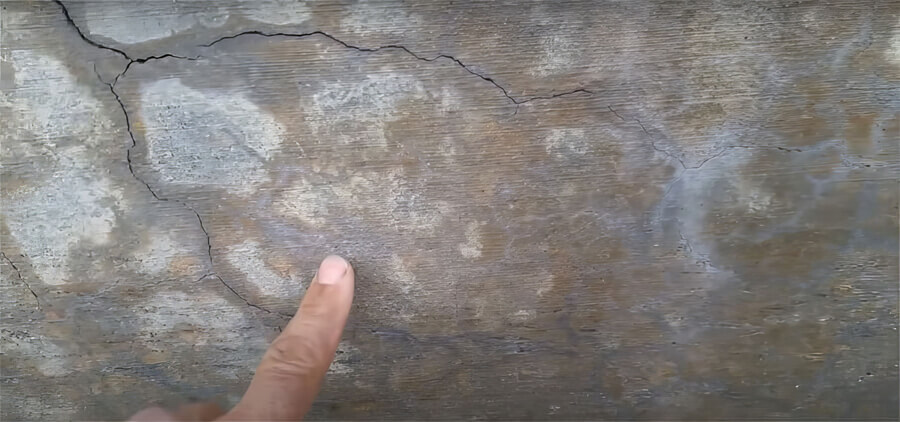Legal Action for Pool Cement Defects in the Austin Area
In Austin and around Central Texas, an increasing number of pool owners are facing a vexing issue: significant cracking in their pool cement. This problem, primarily caused by an alkali-silica reaction (ASR), or “concrete cancer,” has led to costly damages and repairs. The Law Office of Joel A. Levine, known for its comprehensive expertise in product liability and construction defect cases, is at the forefront of addressing these concerns. The firm offers skilled legal guidance and representation for those affected.
As Austin, Texas heats up this summer, many residents are discovering their once-idyllic pools riddled with fractures across the floors and walls, particularly in hot tub areas. These cracks, often due to Alkali-Silica Reaction (ASR), seriously threaten concrete structures constantly exposed to water.
Understanding Alkali-Silica Reaction (ASR)
Alkali-silica reaction, “concrete cancer“, is a chemical interaction between the alkaline components of cement and reactive silica found in some aggregates, like sand and crushed stone. This reaction forms a gel that can absorb water and expand, exerting internal pressure that results in cracking and structural weaknesses within the concrete. Signs of ASR include random, widespread cracking and fracturing of the concrete, alongside spalling and an oozing gel from the cracks.

Historical Context and the 2016-2022 Impact
The defective concrete issue primarily stems from pools constructed in Central Texas from 2016 to 2022, a period marked by significant supply chain disruptions during a construction boom. During these years, the usual additives, such as fly ash, which prevent ASR, were in short supply. Consequently, some suppliers omitted these crucial additives, leading to a heightened risk of ASR in the concrete used during this time.
Legal Perspective: Pool Cement Lawsuits
Homeowners and business owners affected by ASR are increasingly taking legal action to seek compensation for their damages. Attorney Dave Wenholz, who recently joined the Law Office of Joel A. Levine, serves on the Plaintiff’s Liaison Committee for the ongoing Multi-District Litigation and is deeply involved in these cases. Wenholz’s experience and understanding of the issues and potential parties involved in such claims make him a pivotal figure in these legal proceedings.

Steps for Homeowners and Business Owners
For pool owners suspecting ASR, identifying the problem involves recognizing distinct cracking patterns and the presence of a gel-like substance oozing from the cracks. If these signs are evident, consulting with a specialized attorney is crucial to discuss the possibility of testing the pool concrete and pursuing a lawsuit.
Remedies and Recoverable Damages
The scope of recoverable damages in defective pool concrete lawsuits can be extensive. Affected parties may claim:
- costs for repairs
- total replacement of the pool
- and any related property damage
The Law Office of Joel A. Levine works closely with clients to ensure they receive the maximum compensation possible under the law.
Pool owners in Central Texas who installed pools from 2016 to 2022 and are now experiencing issues should act promptly. The Law Office of Joel A. Levine is prepared to offer comprehensive legal assistance and can help determine the extent of your damages and the viability of your claim. Contact our office today at 512-982-1510 for a consultation.
FAQ on Pool Cement Cracking
What is alkali-silica reaction?
ASR is a chemical reaction in concrete between alkaline cement paste and reactive silica in aggregates, leading to expansive pressure and cracking.
How do I know if my pool is affected by ASR?
Look for random, extensive cracking and gel oozing from the cracks (see image above). These symptoms are indicative of ASR.
What is the primary cause of ASR in pool concrete?
ASR, or alkali-silica reaction, is caused by a chemical reaction between the alkaline components of cement and reactive silica found in some aggregates when water is present. This reaction can lead to cracking and structural damage over time.
How can I identify if my pool has ASR-related damage?
ASR damage may present as random, extensive cracking with a gel-like substance oozing from the cracks. An expert evaluation, including a core sample analysis, is necessary to confirm ASR.
What steps should I take if I suspect ASR in my pool?
If you suspect ASR, consult with a structural engineer or a qualified pool repair expert who can assess the damage. Core drilling and professional analysis of the concrete may be required for a definitive diagnosis.
Is there a remedy for ASR once it has started?
Remedying ASR can be challenging once it has begun. Often, significant structural repairs or complete replacement of affected areas are necessary. Preventative measures during initial construction are the most effective way to avoid ASR.
What are the financial implications of ASR damage?
Addressing ASR damage can be costly, involving extensive repairs or full replacements of the affected structures. Legal action may be an option if the damage can be linked to negligence or faulty materials used during construction.
What can I do if my pool is affected?
Contact The Law Office of Joel A. Levine to discuss testing the concrete and potential legal remedies.
Assess Your Eligibility for a Lawsuit
If you own a home or business in Central Texas and had a pool installed between 2016 and 2022, you might be entitled to pursue legal action. This is particularly relevant if your pool’s concrete or deck has shown significant cracking, damage, or structural failure.

